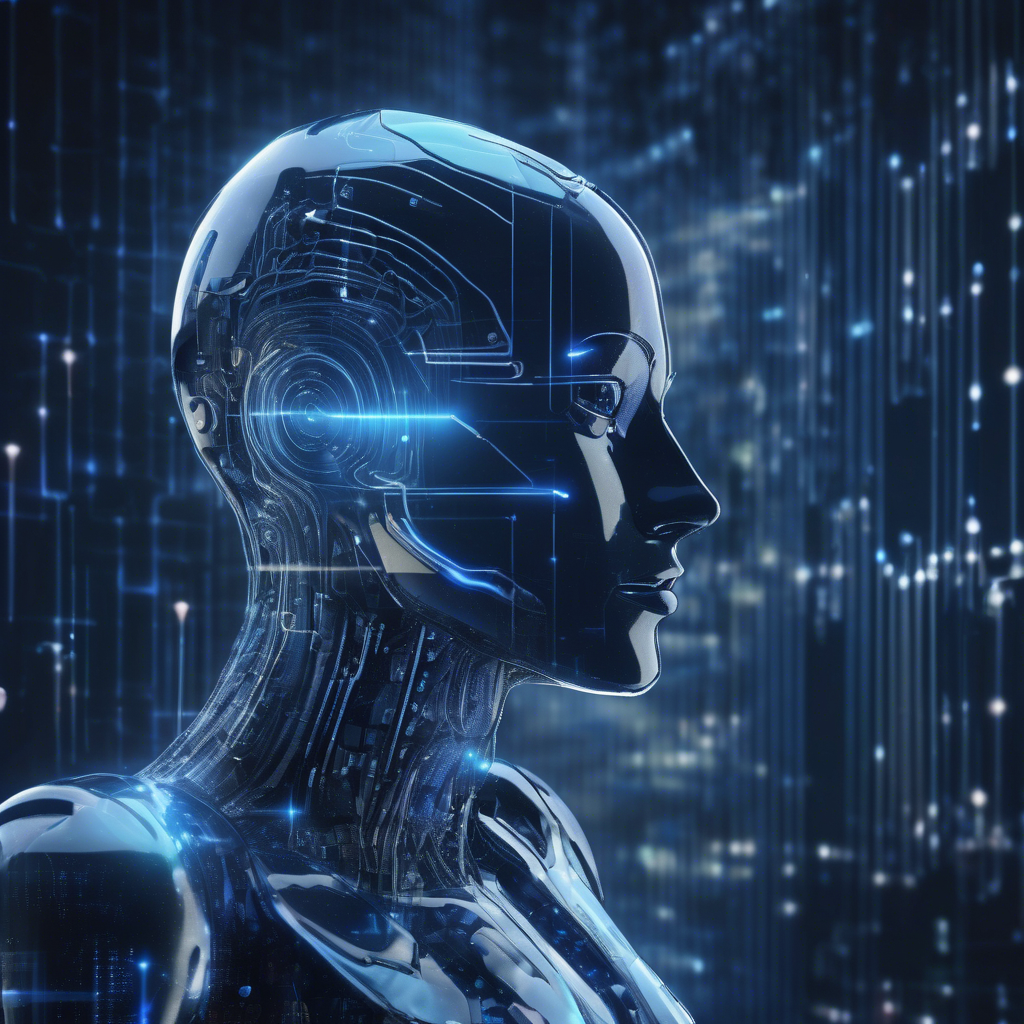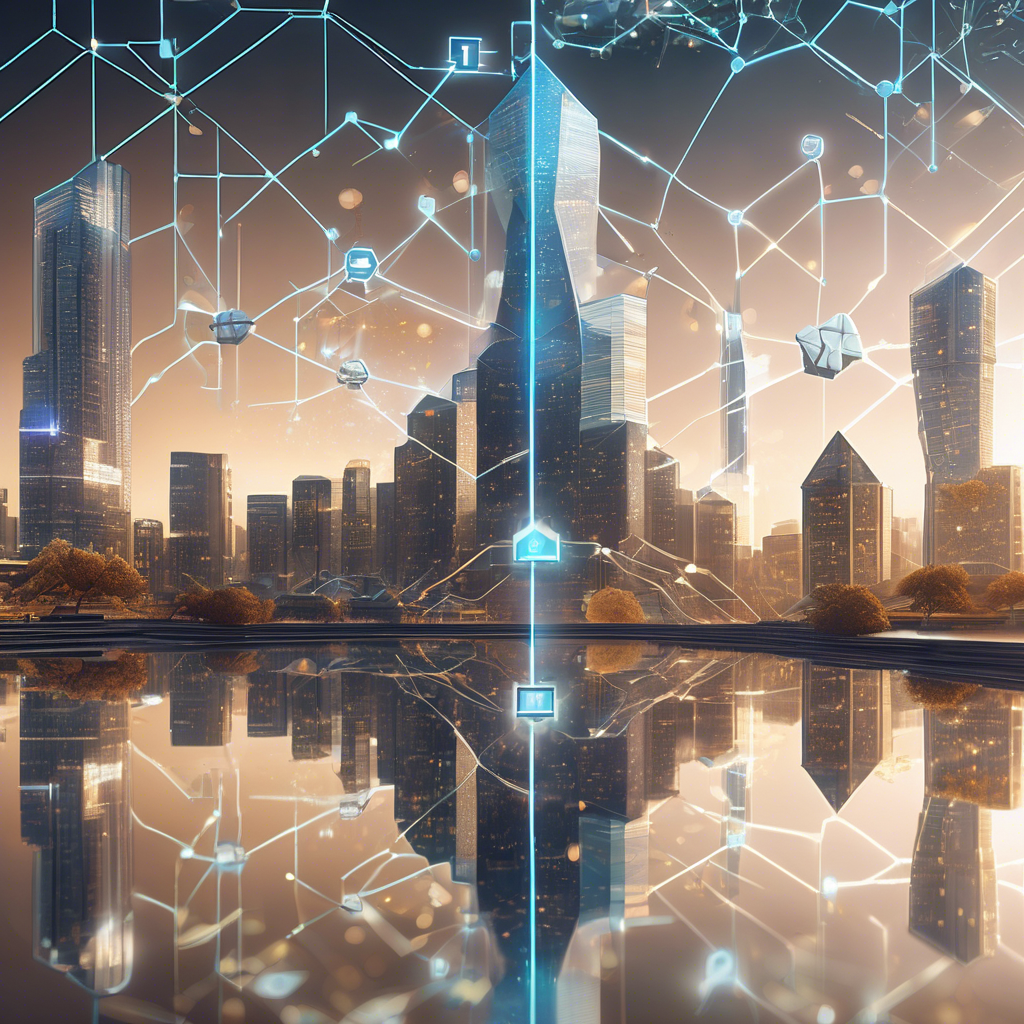None

We were equally as intrigued by artificial intelligence as everyone else, so we recently approached ChatGPT to assist us in finding an AI expert based in DC for an interview. The tool swiftly generated a promising list that included the Center for Artificial Intelligence and Society at the University of Maryland, as well as the Future of Humanity Institute at GW. However, upon conducting further research, our initial optimism faded. While these centers do exist, they are actually affiliated with USC and Oxford, respectively, rather than local universities. It turned out that ChatGPT had provided us with inaccurate information. Thus, we resorted to a more traditional method—Google—and soon connected with a local expert named Alberto Rossi. Rossi, a professor at Georgetown University's McDonough School of Business, leads the relatively new AI, Analytics, and Future of Work Initiative, which focuses on investigating how artificial intelligence impacts workplaces. We reached out to him and began our discussion with some assistance from AI. Over the years, there has been considerable emphasis on understanding the extent to which automation would replace blue-collar jobs and its resulting impact. Intellectual jobs, on the other hand, were often believed to be beyond the scope of AI. However, this perception is changing. We are now witnessing that AI can greatly speed up creative work. Some individuals who thought their white-collar jobs were secure have been caught off guard in the past year. Nevertheless, we are still in the experimental phase. Most studies on the subject currently concentrate on evaluating how these tools affect individuals' productivity. In the context of writing, consensus seems to indicate that these tools enhance the final product and increase productivity. Interestingly, the satisfaction of those using these tools is rising rather than decreasing. Regrettably, this doesn't imply that life will become easier in the sense of having less work. Instead, the output is likely to increase. You may find yourself producing not just one or two pieces a week, but five or six. The process will constantly accelerate. However, the answer to how these advancements impact compensation is still unknown. While output increase may imply higher pay, it remains unclear how companies will price these AI tools. One common strategy employed by companies is to offer heavily discounted products initially, and once they've gained a wide user base, they increase the prices. While there is a possibility of higher compensation, there is also a chance that licensing the software will be so costly that wages won't experience a substantial increase. The rapid evolution of this technology makes it difficult to make accurate predictions. One application that appears natural to me is in the field of marketing. I believe that AI tools will disrupt marketing jobs significantly. Previously, if a business wanted to advertise across various platforms, they would have to tailor different messages for Instagram, Facebook, print, TV, and radio, as each platform has a slightly different audience. This required a team to cover all the channels. However, AI can now enable quick and fully automated personalization. Consequently, there will be an initial period where some individuals in these roles will find their jobs simplified using these tools as a crutch. However, companies will eventually realize that they may not require as many people in certain departments. The impact on messaging and campaigning in politics will also be significant. Traditionally, analytics tools were used to determine where to concentrate resources in order to win specific counties or constituencies. Going forward, messaging will also be influenced by these tools. I can envision highly personalized messaging and campaigns that target individuals' preferences. The role of lawyers is experiencing dramatic changes as well. Previously, numerous individuals had to comb through lengthy contracts and lawsuits comprising hundreds of pages.
However, now some bots can parse the pertinent information and highlight critical sections for evaluation by human professionals. It's not entirely out of the realm of possibilities. Currently, individuals are comfortable relying on algorithms for less high-stakes decisions. For instance, when visiting a new city, people tend to consult platforms like Open Table for restaurant recommendations. These platforms utilize AI to suggest the most suitable options based on the user's past choices. But for more consequential decisions, such as medical or legal matters, people still feel more at ease interacting with human experts, at least for the time being. I am currently conducting research on how people respond to and trust algorithmic recommendations compared to human advice. However, it's important to note that this research has been greatly impacted by recent events over the past eight months. The experience of interacting with bots used to be subpar in the past. Even just a year ago, attempting to perform tasks like changing a flight on a website often led to extreme frustration. However, with the introduction of ChatGPT, we may witness a paradigm shift. More and more companies are exploring the concept of fully automated chatbots without any human involvement. Therefore, my research aims to understand to what extent and in what contexts can we fully automate these interactions. It's intriguing to reflect on the fact that until a year or two ago, I hadn't even considered these questions. Historical revolutions, like the Industrial Revolution, were typically associated with an increase in employment opportunities. However, I'm uncertain if that will be the case this time around. In many instances, jobs won't disappear, but they will undergo transformation. People's roles and tasks will change, which may require significant reskilling. It is worth considering implementing subsidies for individuals who may face difficulties in finding employment. Nonetheless, it is crucial to ensure that opportunities for reskilling are available. One occupation that has emerged as a result of ChatGPT is prompt engineering—an occupation I hadn't even been aware of until a year ago. It is comparable to optimizing search queries on Google. With tools like ChatGPT, prompt engineering, including the type of query employed and the associated information provided, greatly impacts the responses generated. While certain industries may experience contraction due to automation, there will also be areas that expand. In the case of financial services, concerns were raised about robo-advisers diminishing the demand for financial advisers. Yet, these robo-advisers have actually significantly broadened the market by reducing the cost of services for less affluent individuals. One thing that is becoming increasingly evident is that the more data these tools are fed, the better they perform. The development of these tools will continue to accelerate. As more individuals interact with these systems, the tools acquire more information and improve accordingly. The adoption of ChatGPT, for instance, has been remarkable and faster than any other tool we have witnessed thus far. We can anticipate a major leap forward with the release of ChatGPT 5, and the pace of progression will only hasten. I agree. People were initially apprehensive when books were introduced because they feared their widespread availability would render learning unnecessary. Similar concerns were voiced with the advent of the internet, suggesting that easy access to information would eliminate the need for reading and learning. However, reality proved otherwise. Access to tools like Google has actually made us more efficient and productive. Now, we are entering a new stage of advancement. Granted, it may require some time to adapt to these changes, but I believe people will naturally evolve. We are merely at the dawn of this revolution.
Brief news summary
None
AI-powered Lead Generation in Social Media
and Search Engines
Let AI take control and automatically generate leads for you!

I'm your Content Manager, ready to handle your first test assignment
Learn how AI can help your business.
Let’s talk!

Elon Musk's AI company says Grok chatbot focus on…
Elon Musk’s AI company, xAI, has admitted that an “unauthorized modification” caused its chatbot, Grok, to repeatedly post unsolicited and controversial claims about white genocide in South Africa on Musk’s social media platform, X. This admission has sparked extensive debate over potential AI bias, manipulation, and the need for transparency and ethical oversight in AI technologies.

FirstFT: AI groups invest in building memory capa…
Major AI companies such as OpenAI, Google, Meta, and Microsoft are intensifying efforts to develop and improve memory capabilities in their AI systems, marking a significant advancement in AI technology.

JPMorgan Settles OUSG Tokenized U.S. Treasuries o…
JPMorgan Chase has completed its first transaction on a public blockchain by settling tokenized U.S. Treasuries through its Kinexys platform, which connected to Ondo Finance's public blockchain using Chainlink's technology.

U.S., UAE agree on path for Emirates to buy top A…
ABU DHABI, United Arab Emirates — The U.S. and the United Arab Emirates are collaborating on a plan that would allow Abu Dhabi to purchase some of the most advanced American-made semiconductors for its AI development, U.S. President Donald Trump announced Friday from the Emirati capital.

Timeline of wealth: Navigating AI, blockchain, gr…
Preparing your Trinity Audio player...

No, Graduates: AI Hasn't Ended Your Career Before…
Imagine graduating with a liberal arts degree amid the rise of AI—that was the mindset I faced addressing Temple University’s College of Liberal Arts, my alma mater, earlier this month.

UAE and US Agree on Path for Abu Dhabi to Buy Mos…
During a recent visit to Abu Dhabi, U.S. President Donald Trump announced a landmark agreement between the United States and the United Arab Emirates (UAE), marking a major milestone in technological collaboration.

 Auto-Filling SEO Website as a Gift
Auto-Filling SEO Website as a Gift








 Auto-Filling SEO Website as a Gift
Auto-Filling SEO Website as a Gift

